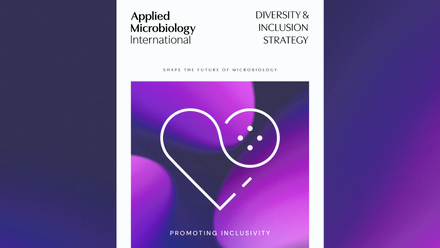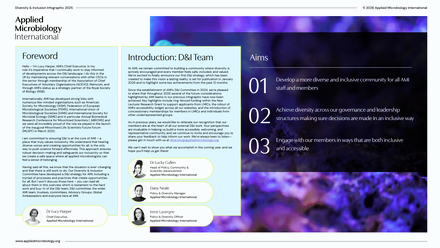Different mechanisms spur career progression of academics from different minorities

Different strategies are needed to enable researchers from different minoritised communities to progress their careers, a new study has found.
The study, called the DISCOVerY Project, will be presented at the Minoritised Life Scientists Future Forum which will be held in the ICC Birmingham this spring.
It is the work of a team of marginalised researchers at London South Bank University who have discovered how the barriers and enablers of career progress differ between researchers who are disabled, racially minoritised, female and/or having caring responsibilities. They also studied the impact of the COVID pandemic on their sense of career progress.
The team discovered that seeking institutional support is important for the career progress of disabled researchers, while having a secure academic role is important for the career progress of racially minoritised researchers.
“The career progress of an academic researcher demands excellence in teaching, research and administration. Yet, the career progress of a researcher is uncertain and challenged by heavy workloads, competition for funding and pressure to conduct groundbreaking research,” said author Dr Preethi Premkumar.
“Being minoritized by disability, race, gender and/or caring responsibilities places an additional strain to meet these demands and overcome these hurdles.”
Career progression
The team designed an online self-report survey around the meaning of career progression, including the decision for choosing a career in research, seeking career guidance, receiving and benefitting from support from mentors and the positive and negative impact of the COVID-19 pandemic.
They administered the survey to academic researchers across the UK. 128 participants completed the survey, representing academic researchers in the United Kingdom regardless of the presence of any protected characteristics.
“We found that researchers with sensory impairments or multiple disabilities received more support during the COVID pandemic than researchers who were not disabled. Also, researchers from a racially minoritized background perceived more benefits of the support they received for research than White researchers who were not British,” Dr Premkumar said.
“Among disabled researchers, greater perceived support from the institution predicted a greater sense of career progress. In contrast, among racially minoritized researchers, seeking career guidance and choosing a career in research because of the stability it offered predicted career progress. Among women and those with caring responsibilities, the type of employment contract predicted a greater sense of career progress.”
Surprising finding
One surprising discovery was that even among researchers who self-identify as disabled, those with sensory and learning impairments and those with multiple impairments were more likely to choose a career for altruistic reasons, such as to give back to social or seek social justice, than those with no disability or a physical impairment or mental difficulty.
“It seems that researchers with sensory and learning impairments and those with multiple impairments have a social obligation to fulfill through their research and a desire to impact society and change the discourse around ableism through their lived experiences," said Dr Premkumar.
“There are also gender differences in what counts as career progress. Among women and among those with caring responsibilities, the type of employment contract predicted a greater sense of career progress. Among men, choosing a research career because of the stability it offered, perceiving success in their career and perceiving support from the institution predicted career progress.
“The career progress of academic researchers is fraught with socio-economic inequalities.
“Minoritised academic researchers experience a unique journey in their careers encumbered by the unique obstacles they face in progressing their research ideas. This poses a real problem in the scientific pursuit of addressing real world problems as the knowledge is dominated by a stereotypical world view.”
Clear steps
Dr Premkumar said we now need to develop clear steps to advocate for minoritised academic researchers.
“The next steps are to engage with Heads of Funding Organisations, Academic Governance organisations and at a local level, Human Resources Teams and line managers about personalising the criteria for performance and mentoring staff towards career progress.”
The team was funded by UKRI and the British Academy Funding through the Equality Diversity and Inclusion Caucus (ES/X008444/1).
The Minoritised Life Sciences Future Forum conference (MLSFF) takes place from 31st March to 2nd April 2025 at the ICC Birmingham.
To find out more and sign up for updates, click here.


